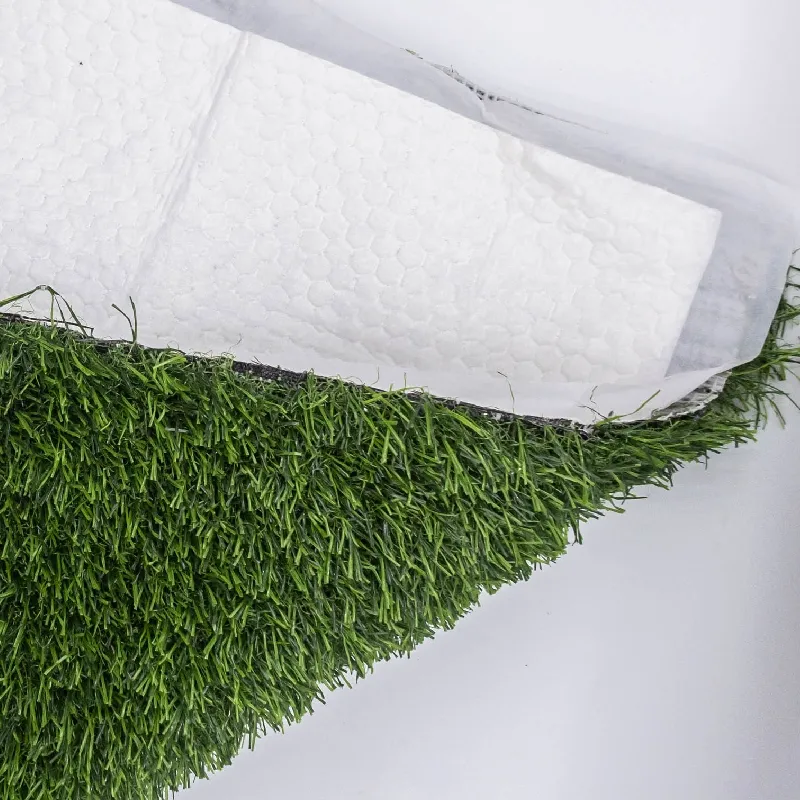
- Afrikaans
- Arabic
- Belarusian
- Bengali
- Czech
- Danish
- Dutch
- English
- Esperanto
- Estonian
- Finnish
- French
- German
- Greek
- Hindi
- Hungarian
- Icelandic
- Indonesian
- irish
- Italian
- Japanese
- kazakh
- Rwandese
- Korean
- Kyrgyz
- Lao
- Latin
- Latvian
- Malay
- Mongolian
- Myanmar
- Norwegian
- Persian
- Polish
- Portuguese
- Romanian
- Russian
- Serbian
- Spanish
- Swedish
- Tagalog
- Tajik
- Thai
- Turkish
- Turkmen
- Ukrainian
- Urdu
- Uighur
- Uzbek
- Vietnamese
Tips for Installing Artificial Grass for Your Dogs and Pets
Nov . 10, 2024 19:01 Back to list
Installing Artificial Grass for Dogs A Comprehensive Guide
As a pet owner, creating a safe, comfortable, and enjoyable space for your furry friends is a top priority. One increasingly popular solution for dog owners is artificial grass. This synthetic surface offers numerous advantages over traditional lawns, especially for those with energetic pups who love to play outside. Whether you want to revamp your backyard or create a designated play area, installing artificial grass can be a great investment. In this comprehensive guide, we will walk you through the steps to install artificial grass for dogs, highlighting the benefits and considerations involved.
Benefits of Artificial Grass for Dogs
Before delving into the installation process, it’s important to understand why artificial grass is an excellent choice for dog owners
1. Durability Artificial grass is designed to withstand heavy use, meaning it can handle the rambunctious play of dogs without succumbing to wear and tear. Unlike natural grass, which can become patchy or bald, artificial turf retains its lush appearance year-round.
2. Maintenance Compared to natural grass, artificial turf requires significantly less maintenance. You won’t need to mow, water, or fertilize it, saving you time and effort. A quick rinse with water is typically all that’s needed to keep the surface clean and fresh.
3. Hygiene Artificial grass is made from non-toxic materials, making it safe for your pets. It is also designed with excellent drainage systems, helping to eliminate muddy paw prints during rainy weather. In addition, synthetic turf resists pests and weeds, offering a cleaner environment for your dog.
4. Aesthetic Appeal Artificial grass can enhance the look of your outdoor space. Available in various shades and textures, it can mimic the appearance of natural grass, creating an appealing environment for both you and your pets.
Step-by-Step Installation Process
1. Choose the Right Type of Artificial Grass Research different types of artificial turf available. Look for options specifically designed for pet use, as they usually have better drainage and durability.
installing artificial grass for dogs

2. Plan Your Space Determine the area where you want to install the artificial grass. Measure the dimensions carefully to calculate how much turf you will need.
3. Prepare the Area Clear the designated area of any debris, grass, or weeds. You may need to remove about 2 to 3 inches of soil to make room for the base layer and drainage materials. Compact the soil to create a firm foundation.
4. Install a Base Layer Pour a layer of crushed rock or gravel (about 3 inches thick) over the compacted soil. This layer will help with drainage and create a solid base for your artificial grass. Use a roller or plate compactor to compress the gravel firmly.
5. Install Drainage Depending on your existing landscaping, you may need to install a drainage system, such as perforated pipes, to ensure water flows away from the turf effectively.
6. Lay the Artificial Grass Unroll the artificial grass onto the prepared area. Make sure the grass fibers are facing the same direction for a consistent look. Trim any excess grass around the edges with a sharp utility knife.
7. Secure the Edges Use landscaping stakes or adhesive to secure the edges of the artificial grass. Make sure there are no gaps or loose areas that your dog could dig through.
8. Infill and Brush Depending on the type of artificial grass, you may need to add infill (e.g., rubber granules or sand) to enhance cushioning and stability. Brush the grass fibers with a broom to help them stand upright and create a natural appearance.
9. Final Inspection Once everything is in place, inspect your installation for any flaws. Make adjustments as needed to ensure a flat, even surface.
Conclusion
Installing artificial grass for dogs is a fantastic way to provide your pets with a safe and fun outdoor space. By following this guide, you can enjoy a beautiful, low-maintenance yard that stands up to the wear and tear of energetic dogs. With careful planning and execution, your outdoor area will be transformed into a perfect playground for your furry friends, allowing them to enjoy the great outdoors without the hassles of traditional grass.
-
The Benefits of Artificial Turf for Indoors
NewsJul.15,2025
-
How Artificial Grass Suppliers Ensure Quality Products
NewsJul.15,2025
-
Artificial Grass and Pets: A Space for Relaxation
NewsJul.08,2025
-
Balcony & Outdoor Decoration with Artificial Grass
NewsJul.08,2025
-
Best Indoor Artificial Grass for Home
NewsJul.07,2025
-
Best Pet Turf for Dogs: Safe & Durable Artificial Grass Options
NewsJul.07,2025
Products categories









